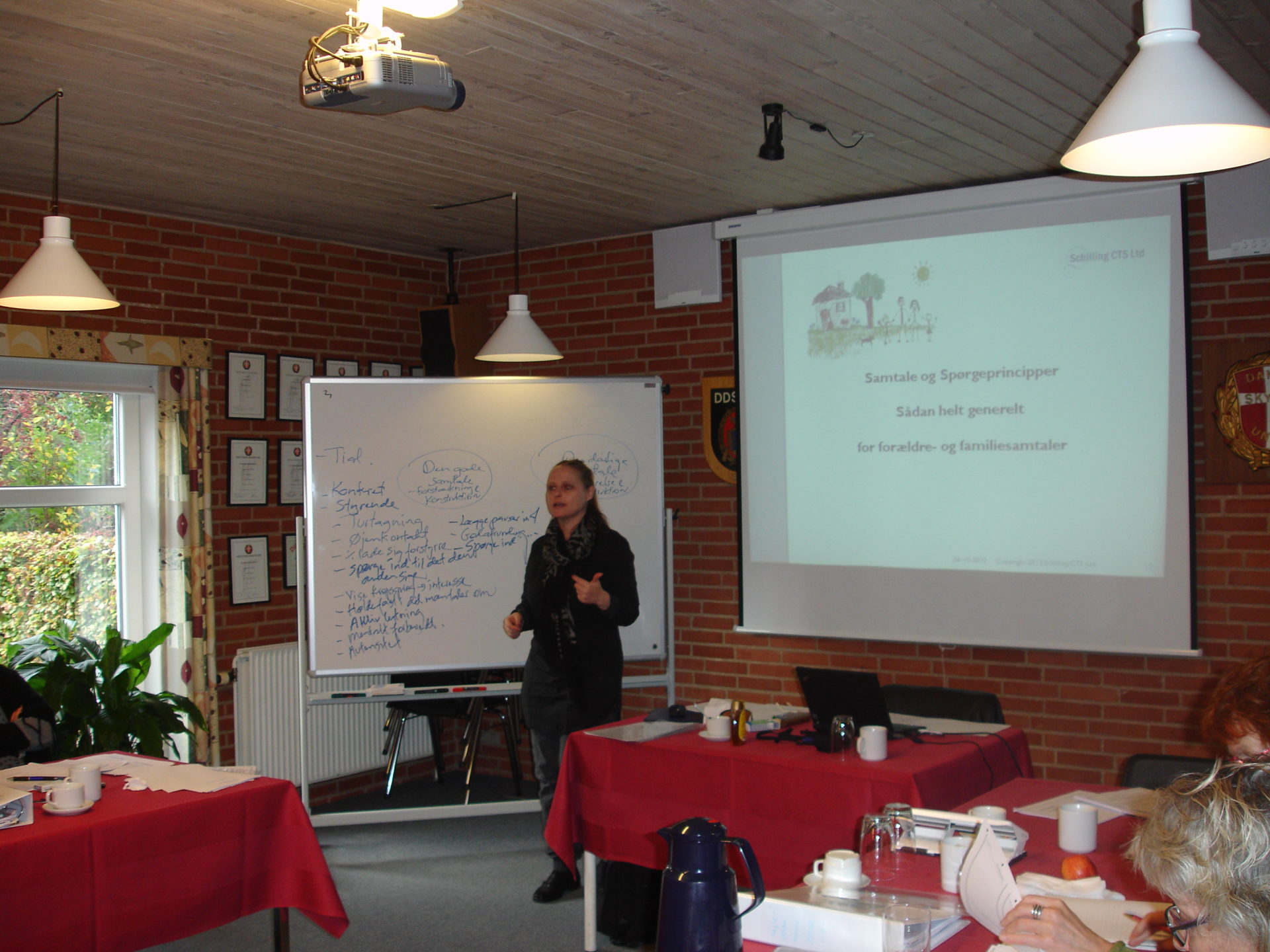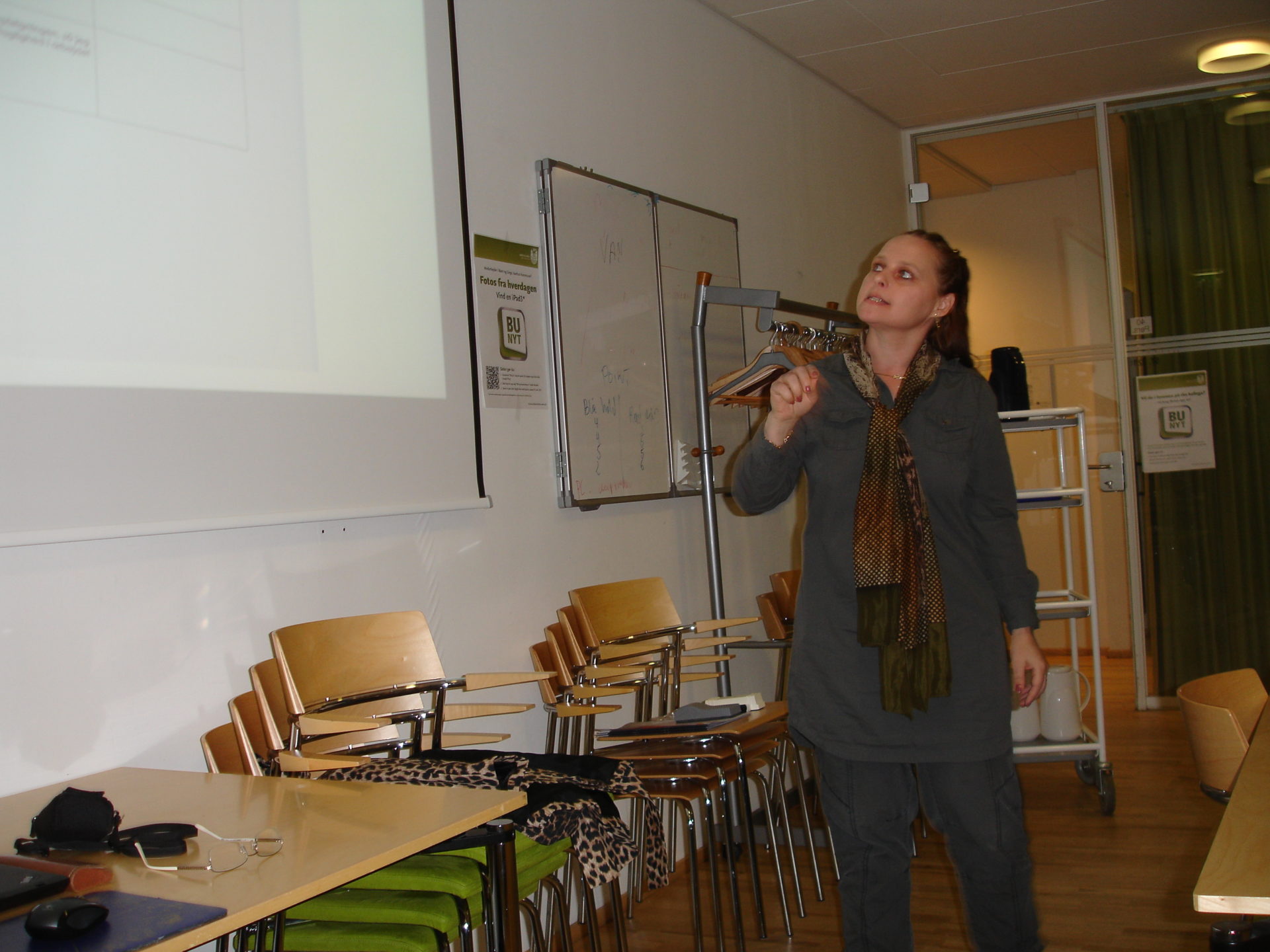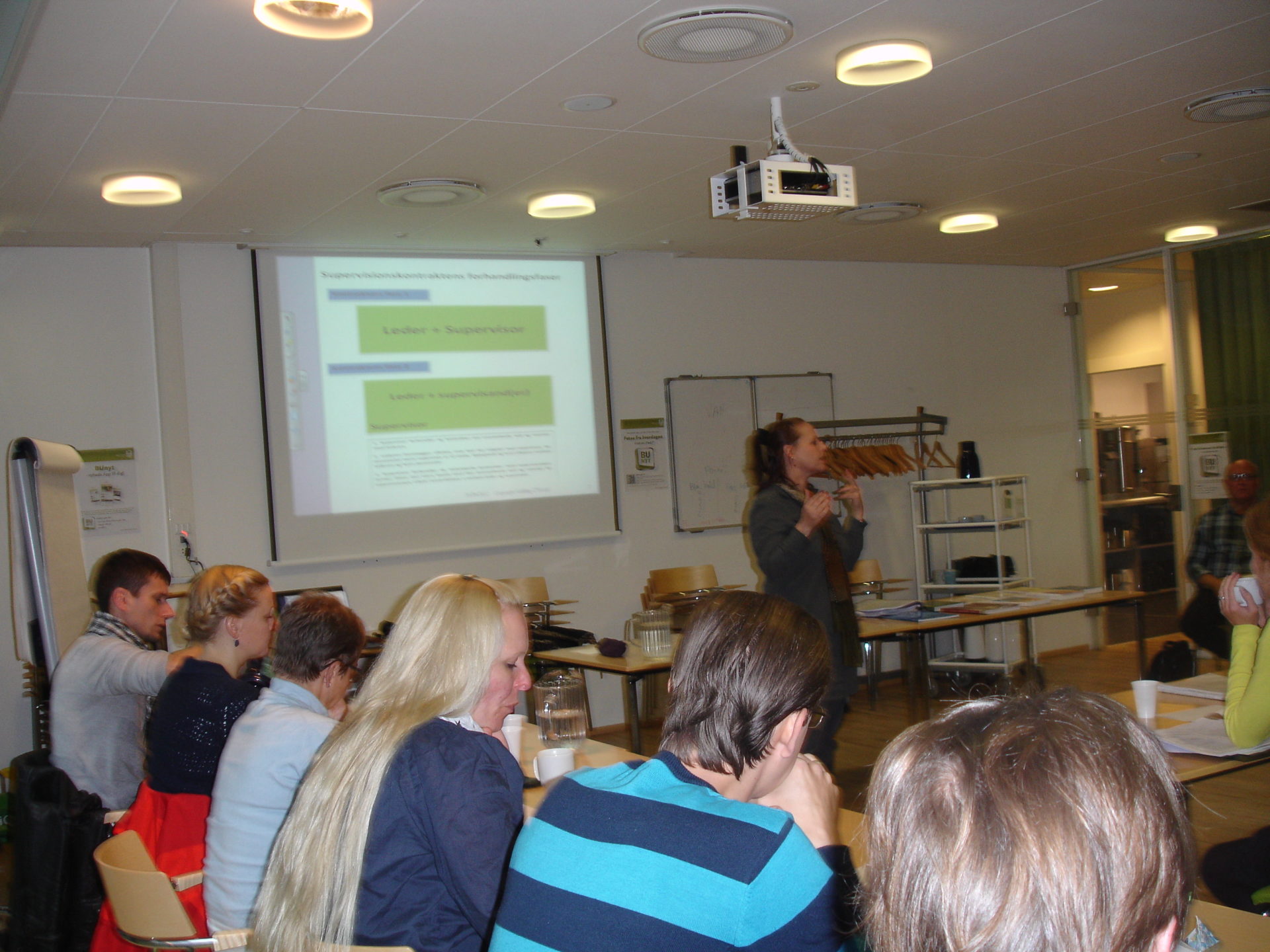Training
We design various training events and training programs
which are specific to your needs and tasks when working with service users
In collaboration with the Anglia Ruskin University in Cambridge, we offer teams of employees two ECTS approved foundation courses in systemic approaches focusing on counseling and treatment, and interdisciplinary collaboration between staff teams, across organizations and management. We also offer education programs in general supervisory practice and a course for supervisors designed according to their specific needs, both courses pre-approved and accredited by the Danish Psychology Association.
The Application of Systemic Approaches to Management and Human Resource Professionals
A one-year part time University Certificated training Course
(30 level 7 ECTS credits)
This course is designed for managers and human resource workers looking to develop their skills and practice in public and private businesses and organizations in a context of change and economic, social and cultural challenges.
The course is a one-year part-time profession specific course in the knowledge and practice of systemic approaches designed to assist managers and human resource workers transform their organisation to the new democratic reality effecting business life, customer-client relations and the way employees and management communicate and act together in private and public businesses.
The course is divided into fifteen 7 hour days over the period of a year. Time will also need to be set aside by trainees in order that they can complete the required projects, reading, literature presentations and journal making eighteen course days in total. Trainees will also be expected to participate in a learning group ten evenings during the year.
On completion of the course the trainee will gain a Post Graduate Certificate validated by the Anglia Ruskin University, United Kingdom awarding the trainee 30 academic ECTS credits as part of the University Credit Accumulation Transfer Scheme.
What are systemic skills and what can they do for managers and human resource workers?
Companies and businesses never exist in isolation and are constantly interacting with the organisational environment they exist in. Therefore managers and human resource workers are working in a continuous context of change. Managing change within and around organisations is a human process that requires an educated understanding of human systems dynamics. This means that people responsible for managing change must acquire systemic abilities to co create the growth of new ways of collaborative practice/work.
This course offers management and Human Resource professionals an opportunity to gain a ¡¥systemic¡¦ awareness whereupon they can develop knowledge and skills relevant to their unique practice in a manner that fits the way they operate and learn.
Systemic skills maximise the potential of professional relationships and the effectiveness of communication. Systemic skills ensure that the performance of an organisation and the workers it employs exceeds the sum of its parts. Systemic skills encourage creativity, embrace diversity and generate collaboration. This approach to understanding relationships and communication has meant that systemic approaches have become an important part of a manager¡¦s repertoire of skills, complementing and working alongside the more traditional approaches.
Large organisations are complex human systems, embracing the concepts of transparency, worker¡¦s rights and inclusion. They require the modern day manager and human resource worker to work skilfully and creatively within a context of complexity. In order to successfully manage that complexity an educated understanding of human systems is an essential part of the modern manager and human resource workers¡¦ repertoire.
Learning Objectives of this Course
1. To understand and critically evaluate one¡¦s own profession and workplace from a systemic perspective by way of having developed the skills required to show respect, curiosity and appreciation to all parts of the ¡¥system¡¦ and manage the concept of the observer (the trainee) as part of the system
2. To be able to relate to others (business partners, employees, clients, colleagues etc.) from a position of ¡¥self as part of the system¡¦. Participants will learn skills that enhance self-reflexivity in order to be able to critique and evaluate in ¡¥real time¡¦ their own position in relation to others in order to make a difference
3. To learn how to use positioning in relation to the demands of the service/management. Participants will learn how to learn about themselves as an effective systemic management practitioner in the context of their professional system/s. Participants will learn the ability to evaluate and practice self-assessment in relation to their own practice and professional development thereby becoming their own critical voice.
4. To learn how to be and do systemic management and Human Resource practice. Participants will learn a grounding in the fundamental acts that constitute being systemic across the breadth of approaches and the ability to critique the approach, methods and techniques and the duties, rights and obligations of each systemic practice (the ¡¥pros and cons¡¦ of practical use).
5. To gain a knowledge and practical use of the different systemic approaches including the ability to critically evaluate and develop their use/s in terms of how they fit/complement the unique character of the participant and the circumstances about them (the problem in focus etc.)
Course details
Requirements for completing the course
Trainees must fulfil the following requirements;
- Attendance at course sessions (minimum 80% attendance)
- Attendance at two workshops related to systemic practice
- Satisfactory completion of a practice project and an observation project
- Satisfactorily completion of a literature presentation
- Completion of a learning journal portfolio
- Participating in a learning group
Additional Requirements
Participants must have an opportunity to practice management and human resources skills in their work. Participants must be able to demonstrate the ability to study at post-graduate level. Participants must also be able to speak and understand good English as well as being able to deliver the two written projects for accreditation in English.
Formal Accreditation
The course is owned, managed and delivered by Schilling CTS and accredited by the Anglia Ruskin University in the United Kingdom. This means that the University will be responsible for moderating assessments and the quality and of the course whilst validating the 30 ECTS credits (European Credit Transfer Scheme) at level 7 achieved by participants successfully completing the course.
Course dates
The course is divided into fifteen 7-hour days over the period of a year making a total of 105 hours course contact time. Time will also need to be set aside by trainees in order that they can complete the required projects, reading, literature presentations and journal making eighteen course days in total.
There will also be 10 evenings each 3 hours over the year where you with your colleagues at the course will join a learning group for sharing learning, consultation and supervisory sessions conducted by Schilling CTS Ltd.
Two further days should be set aside in order to attend two full day workshops related to the course.
Tuition fee
Tuition fee will be charged. See specific amount on our website. This is a non-residential training course. Payment can be either paid in full at the beginning of the year or in four installments over the year. We are open to discuss alternative payment arrangements. Course fee covers all the tutorial expenses, personal e-library where you can download all the literature needed for the course, tee, coffee and lunch during course days and payment for the course facilities.
How to apply:
Phone: Schilling CTS Ltd on +44 (0) 1603 667 072
Send us an e-mail on: contact@schillingcts.com






